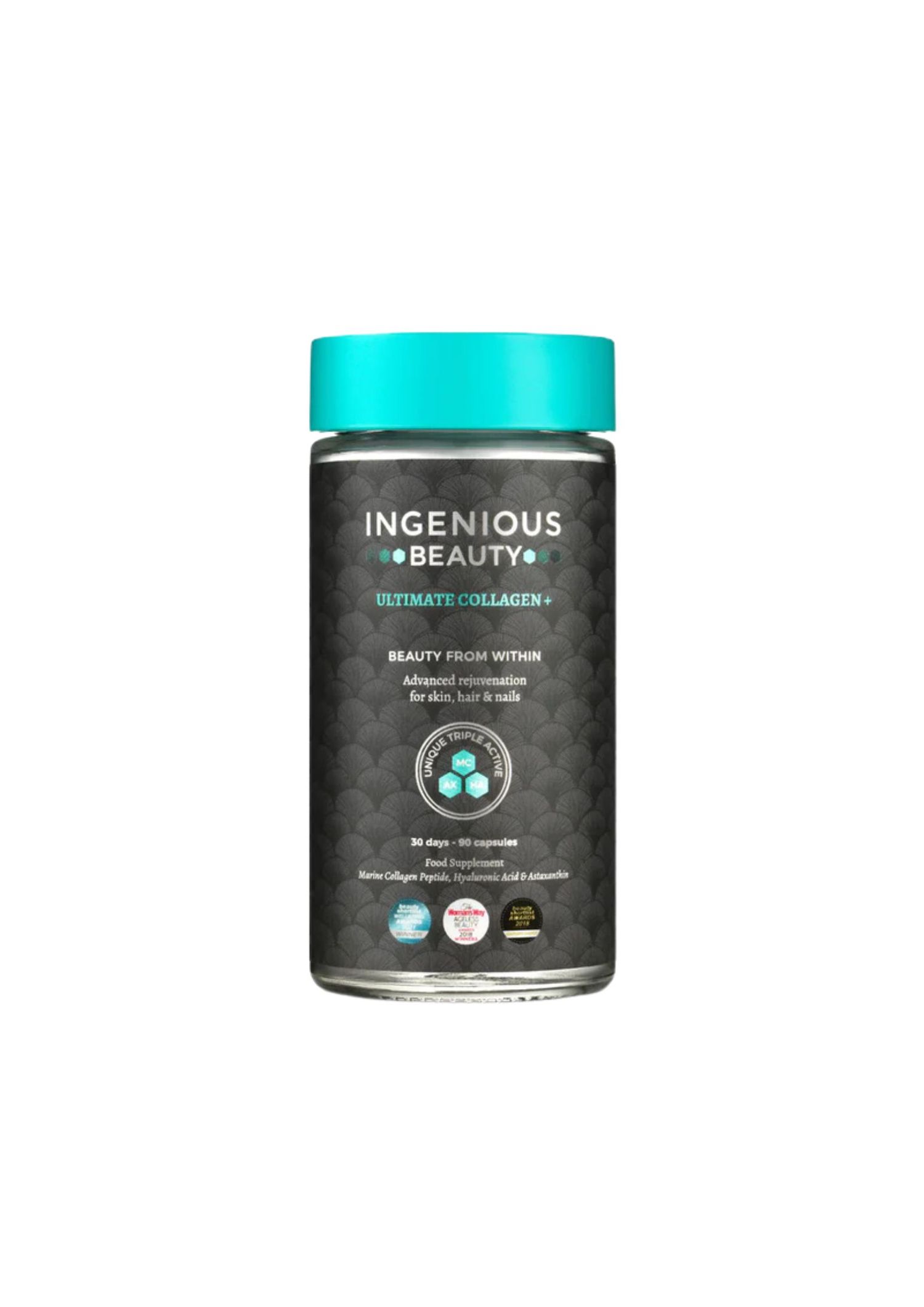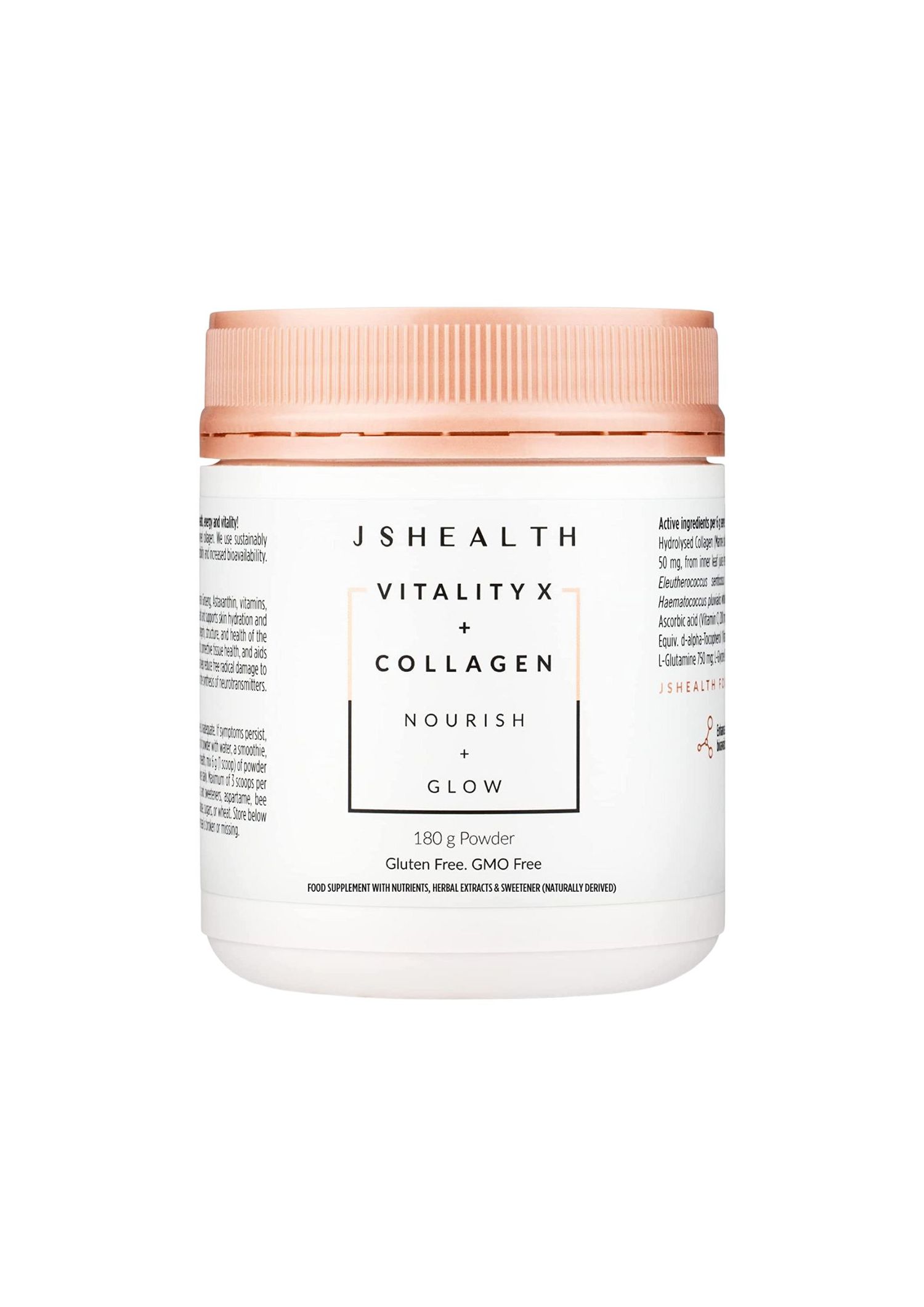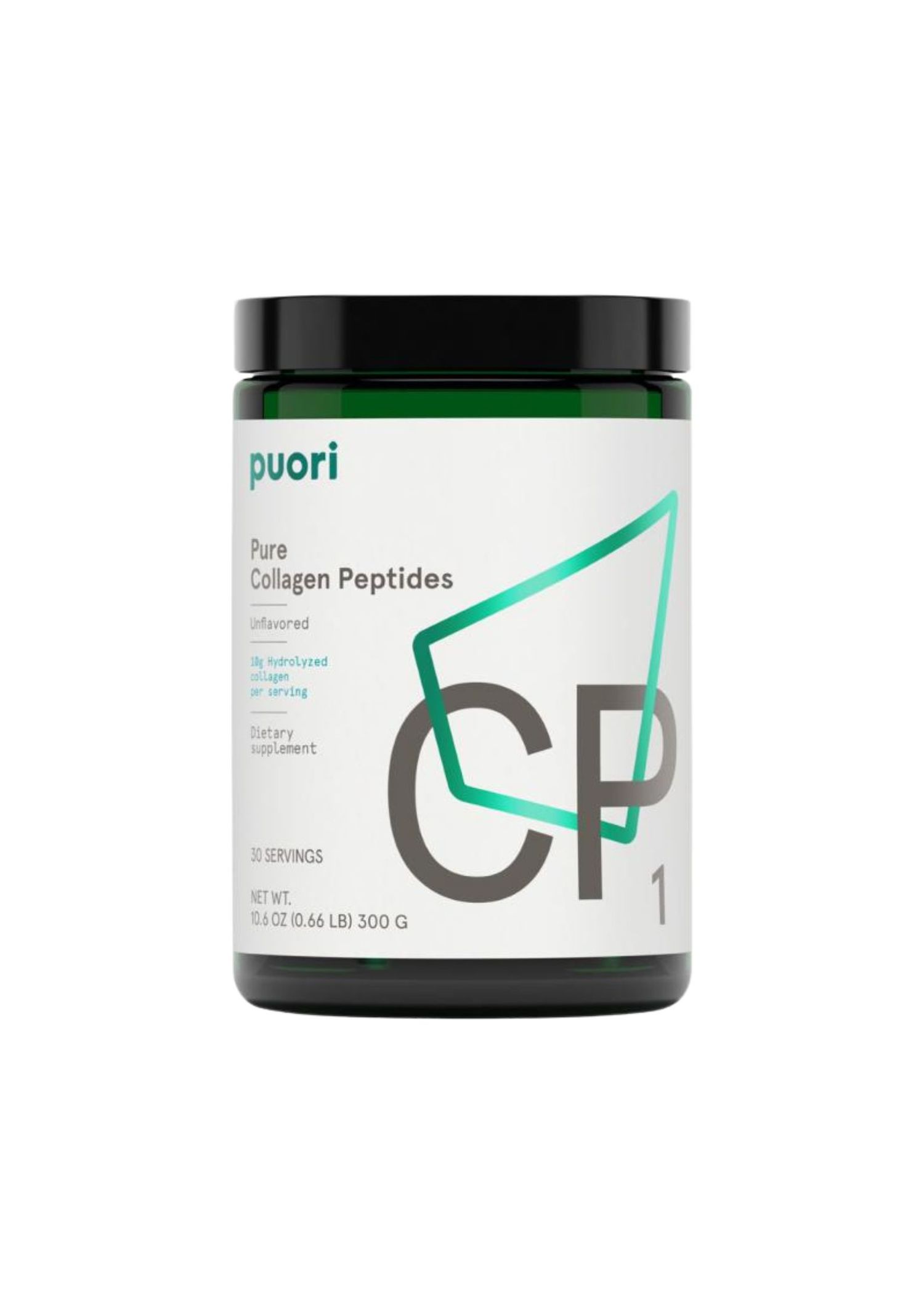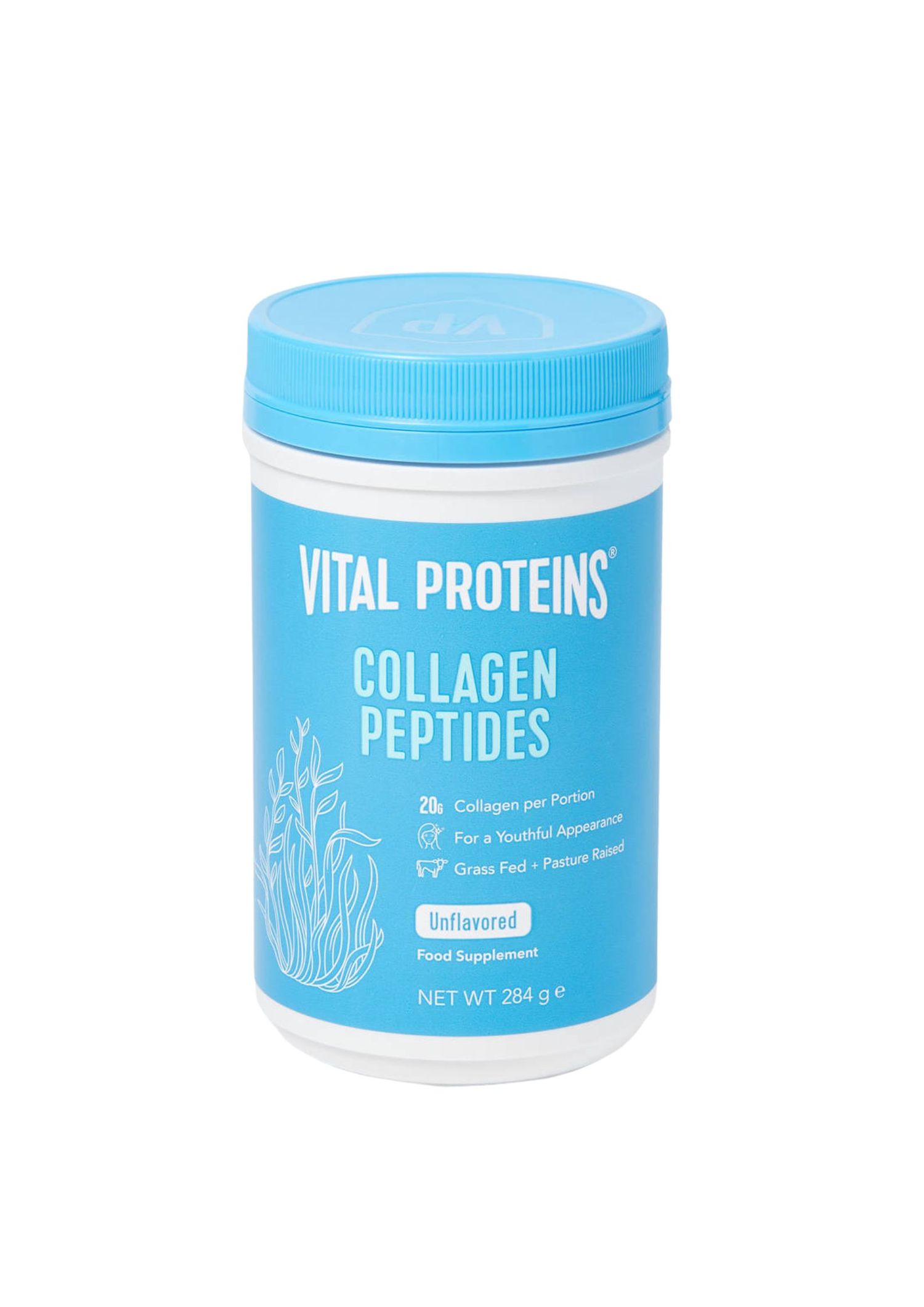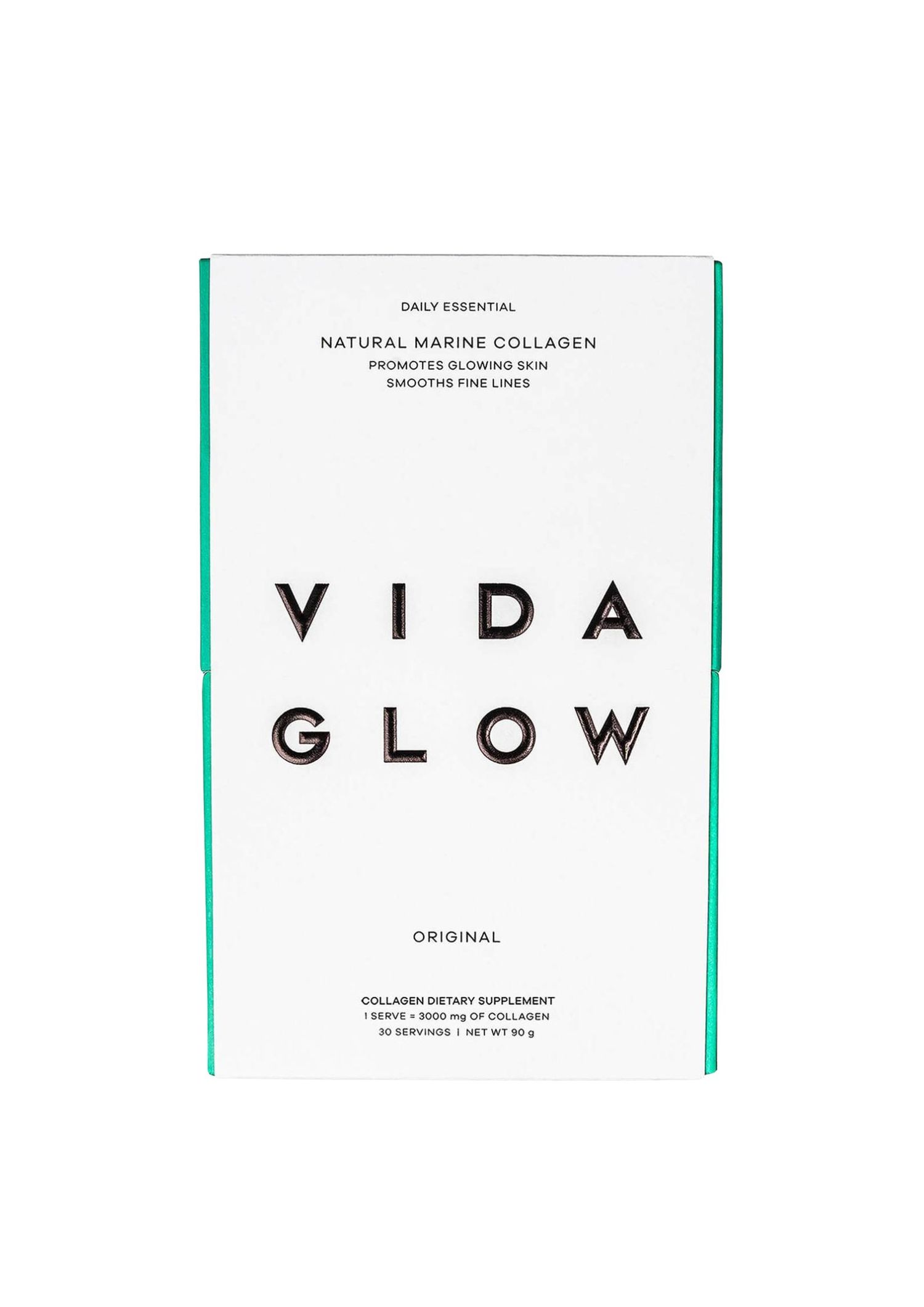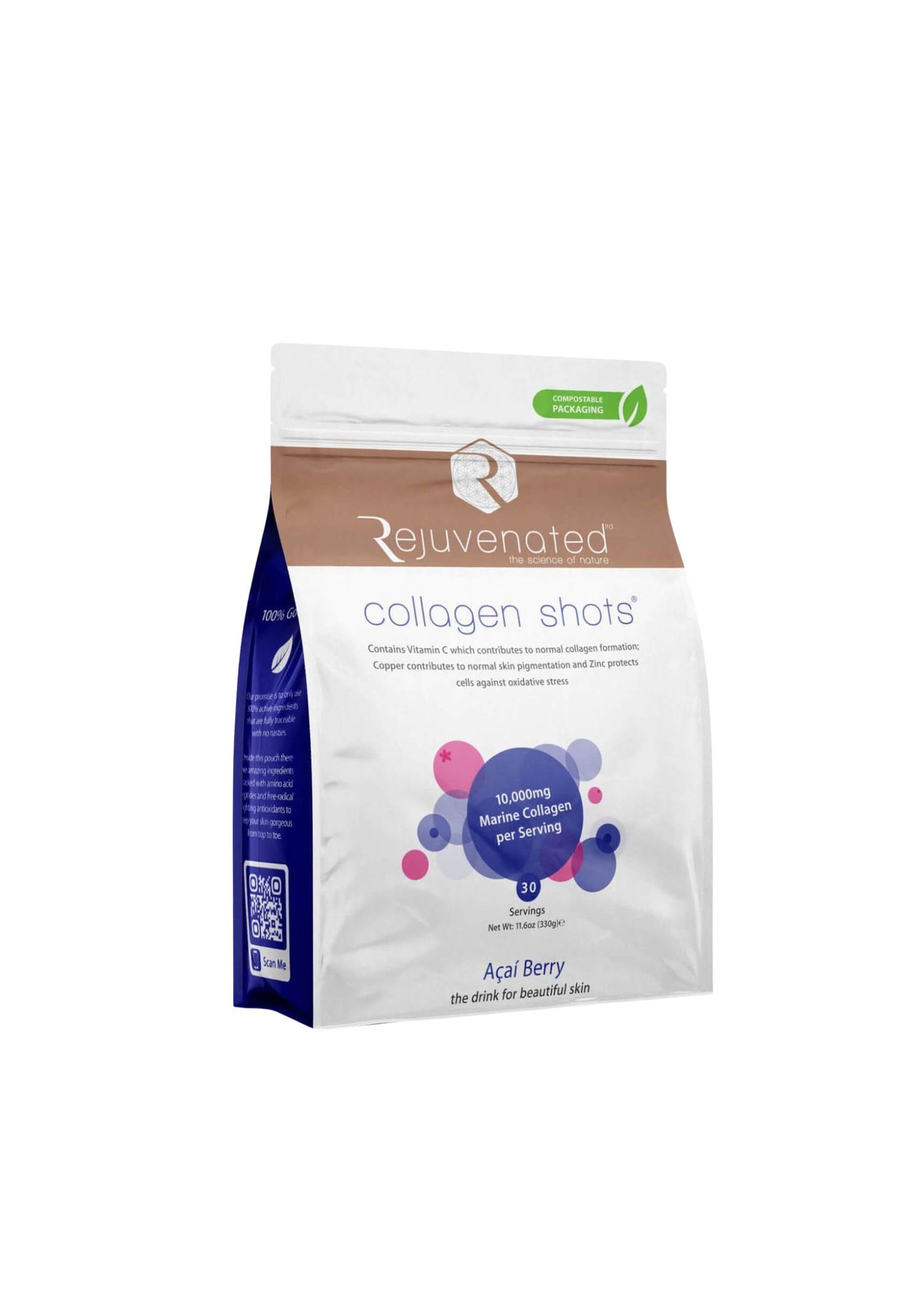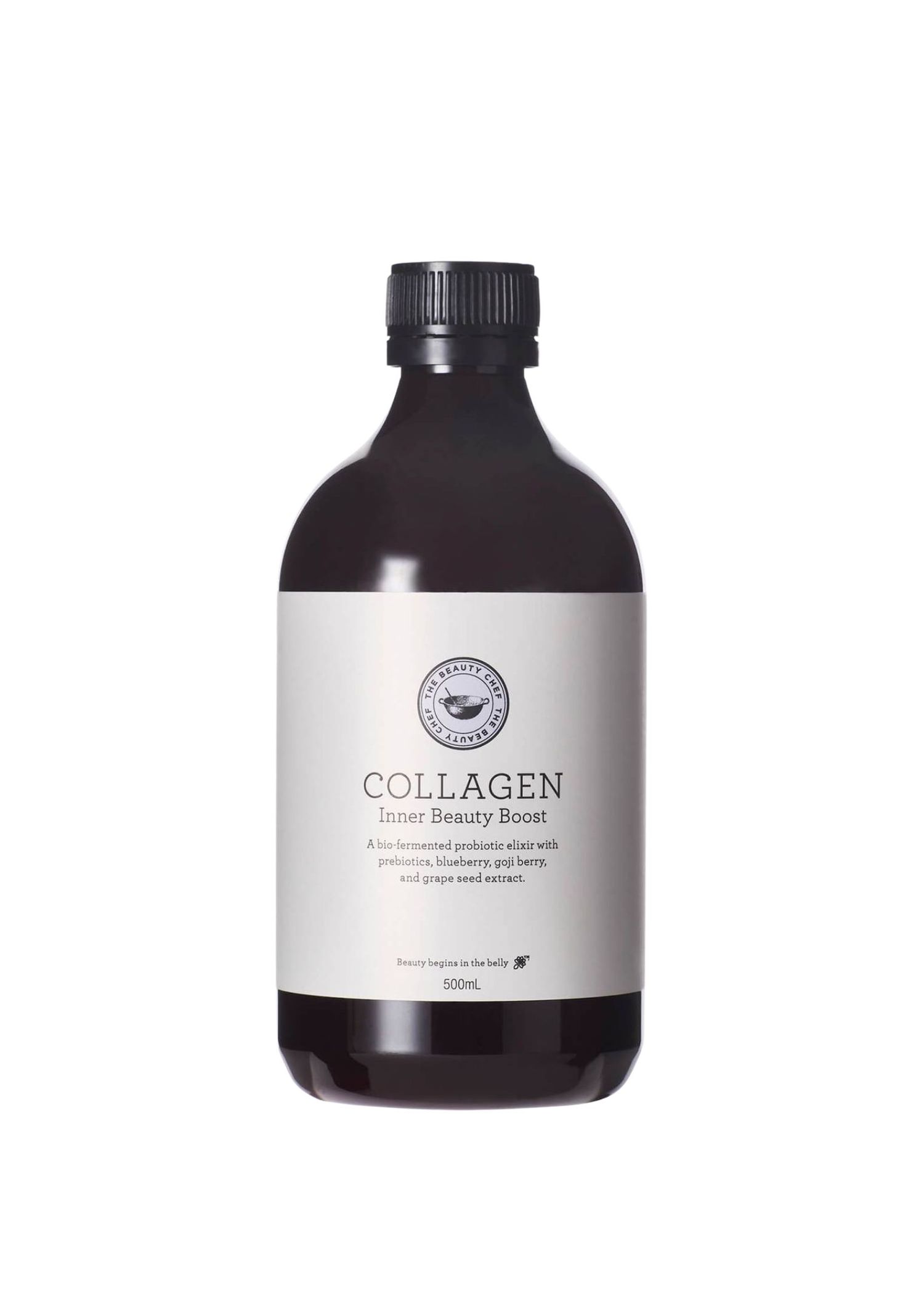Collagen supplements are gaining steam in the wellness sector, with devotees waxing lyrical about plumper skin, softer lines, longer hair and stronger nails. The waters can be murky, though, so we called in the experts to understand whether incorporating ingestible collagen into your skincare routine is worth it
All products featured on Vogue are independently selected by our editors. However, when you buy something through our retail links, we may earn an affiliate commission.
Victoria Beckham swears by a daily dose. Jennifer Aniston mixes it into her morning coffee or smoothie. The idea of getting a youth-boost by sipping a drink or popping a pill may raise a few well-groomed eyebrows but the market for collagen supplements is booming, thanks in part to this celebrity endorsement. In fact, according to marketing analysts Mintel, the global collagen market is set to be worth £755 million by 2023.
But can collagen supplements really make a difference to your skin? Or is it just another wellness fad that's popular today, gone tomorrow? We spoke to the experts to find out…

Victoria Beckham. Photo: Getty
What is collagen?
Collagen is often referred to as the 'building block' of the body as it's the main component of our skin, hair and nails; it's also found in our joints, ligaments, tendons and our major organs, as well as our eyes and teeth.
Of course collagen is most often referred to in anti-ageing terms, as skincare companies have built an entire industry around ramping up its production – and with good reason. According to Pupinder Ghatora, pharmacist and co-founder of Ingenious supplements, "collagen is a protein that makes up about 75 per cent of the dry weight of skin, helping it to remain plump and firm."
So having sufficient stores is not only vital for your general health but also for keeping sagging and wrinkles at bay. "Collagen is responsible for strength and structure in the skin,” adds medical and cosmetic doctor Dr Ewoma Ukeleghe. "It gives your complexion a healthy glow and hydration."
Do we need to supplement our natural collagen levels?
As with all good things, our collagen and elastin levels deplete with age. "When we're children, our collagen stores are full but when we hit our mid-20s they start to decline by about 1.5 per cent a year," says Ghatora.
While the visible results of lower collagen levels is gradual, "you can expect to see skin dullness, the appearance of fine lines and wrinkles, a loss of elasticity and worsening skin turgor (dehydration),” says Dr Ukeleghe.
It's also worth mentioning that women lose 30 per cent of collagen in the first five years after menopause - hence the trend for 'collagen banking', which takes a 360 degrees approach and leans on skincare, supplements and high-tech facials to shore up a ‘bank’ of collagen while your body is still efficient at making it.
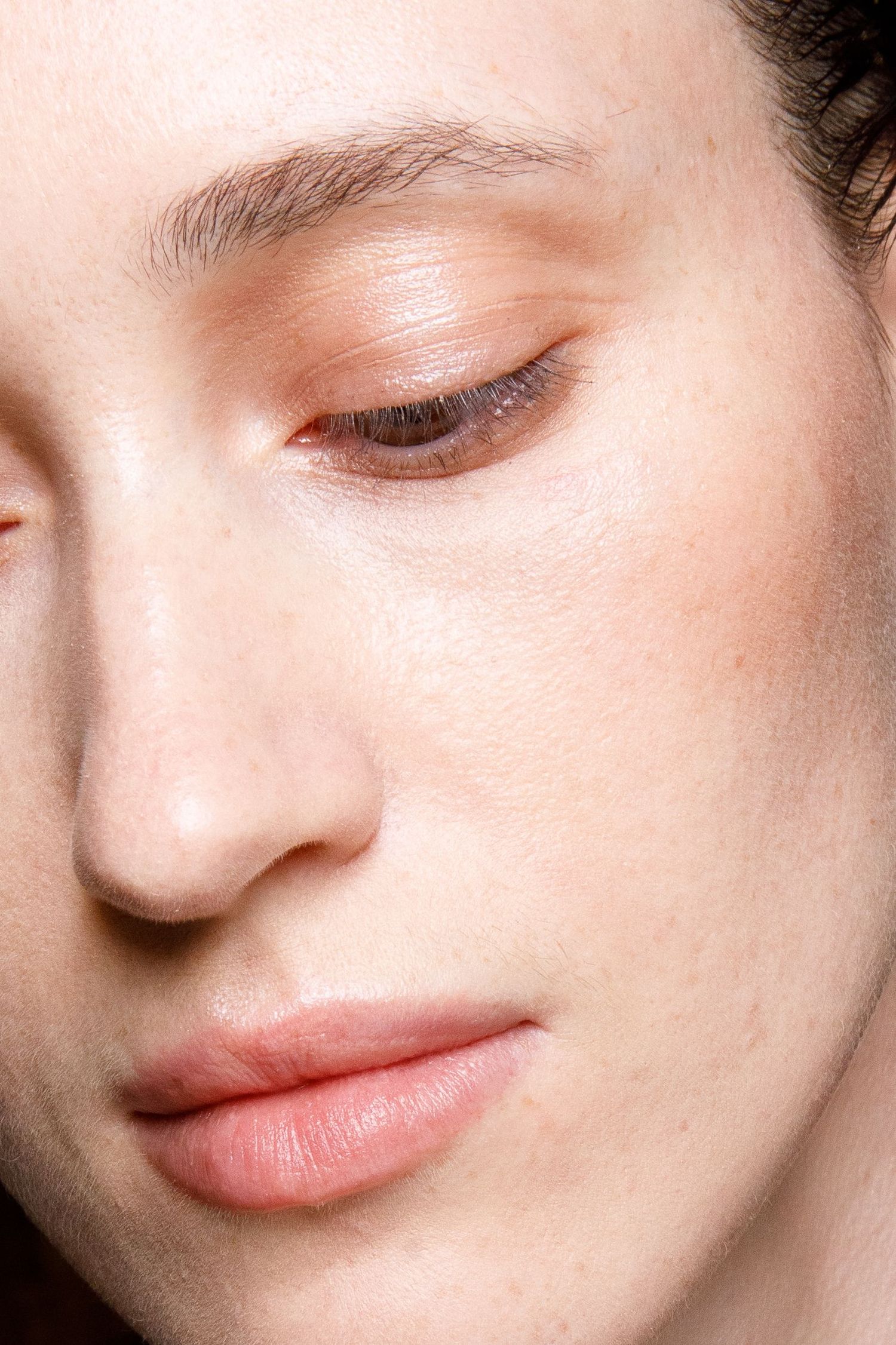
Photo: Rosdiana Ciaravolo
Collagen is a big molecule, which isn't easily absorbed. So how do collagen supplements work?
Collagen in skincare is indeed questionable. "The collagen peptide molecule is too large to penetrate the skin, so if put into creams or serums it will simply sit on the surface," says Ghatora. "It will not replenish collagen levels; to do this it needs to enter the bloodstream."
Enter collagen supplements, where the collagen is usually hydrolysed in order to be more easily absorbed.
What's going on behind the scenes goes something like this. A process known as hydrolysation splits the large collagen molecule into smaller pieces, so they become collagen peptides – aka, short chains of amino acids. When you consume a collagen supplement, the collagen peptide will travel down into the stomach, pass through the intestinal wall and enter the blood stream.
"It is then distributed to the dermis, giving the skin the raw materials to create new collagen and trigger the body's natural production of collagen," says Dr Ukeleghe, who is a fan of Vida Glow Natural Marine Collagen Supplements.
What's better - bovine, marine or vegan collagen?
"First things first – there is no such thing as vegan collagen as the collagen molecule does not exist in the plant genome," says Ghatora. While collagen can be extracted from any animal, most commercial collagen is either marine or bovine. "Most bovine collagen is a by-product of the meat industry," he continues. "Marine collagen is the best type of collagen to go for as it is often sourced from free swimming, deep sea fish so it is a higher quality and can be hydrolysed to a specific length that is absorbed far more effectively."
Ghatora is also keen to stress that it's a myth that liquid supplements are more easily absorbed by the body than other forms of collagen. "In fact, there are no clinical studies that prove liquids are superior to powders or tablets or capsules," he says.

Photo: Rosdiana Ciaravolo
Do all collagen supplements deliver the same benefits?
This is the crux of the problem with the collagen industry, which, like the supplement industry in general, is largely unregulated. Poor quality collagen will get broken down in the stomach so there’s no guarantee the collagen will ever make it to your face. Furthermore, studies, although impressive, are still in their infancy and have mostly been conducted by the brands themselves or performed on animals. So there's still a way to go before we have any conclusive answers.
But for now, there are three crucial factors to consider when shopping for collagen supplements. Above all, the collagen peptide needs to be protected. "Otherwise, the amino acids are broken down by the digestive system and only a minimal amount is absorbed," explains Ghatora. "The body must then try to join them back together if it wants to create collagen, which is an inefficient process."
The collagen peptide should also have a low Dalton weight in order to be small enough to pass through the intestinal wall and enter the bloodstream. "The best quality collagen is only 2,000 Daltons or below," he adds.
Finally, look into the formula. As with skincare, it should be powered by several key actives. "In the body, collagen and hyaluronic acid are symbiotically linked," says Ghatora. "When one suffers, so does the other, which is why you need them together. Just like collagen, our levels of hyaluronic acid decline naturally with age. If you top up your collagen levels with a supplement, but neglect your hyaluronic acid levels, it's like building a house but forgetting to buy any bricks."
In addition, just because you're taking a collagen supplement doesn't mean you should skimp on sunscreen or antioxidants (both the topical kind and those gathered from fruit and vegetables). UVA remains the biggest threat to your skin's collagen reserves so daily protection remains a crucial part of any skincare routine.

